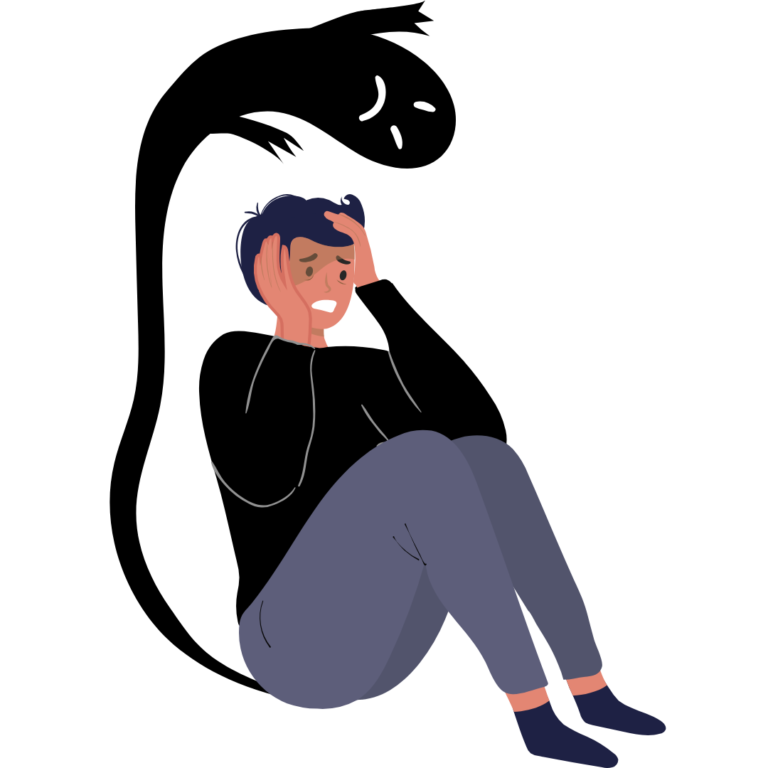Note: Bipolar disorder requires a diagnosis from a psychiatrist. The disorder has complex symptoms that are detailed in the DSM-5 (Diagnostic and Statistical Manual of Mental Disorders, Fifth Edition). If you are seeking a diagnosis, please consult a mental health professional.
Bipolar disorder is a mental disorder that affects a person’s energy, mood, and concentration. Thousands of people suffer from it every day and without help, it can cause a person to lose control over their life. It’s important to understand what bipolar disorder is to better identify and cope with it.
Defining Bipolar Disorder
Bipolar disorder is characterized by large, drastic mood swings that last for extended periods. There are two types of moods, or episodes a person can experience, a depressive episode and a manic episode. The National Institute of Mental Health has identified three different types of bipolar disorders (https://www.nimh.nih.gov/health/topics/bipolar-disorder). Bipolar I is identified by manic episodes that last at least 7 days and can be followed by a depressive episode. Bipolar II is defined by depressive episodes followed by a hypomanic episode (a less severe manic episode). The cyclothymic disorder involves hypomanic and depressive states that aren’t severe or don’t last long enough to be defined as episodes. Although the severity of mood swings can differ, bipolar disorders are all defined by them.
Manic Episodes
Manic episodes are one of the two types of episodes a person with bipolar may experience. These episodes are known for elated, extremely energetic, and sometimes irritable moods. People going through a manic episode often feel invincible, euphoric, self-important, and highly energetic. It’s often that when going through a manic episode a person will be able to go for longer periods without sleep or feel well rested only after a few hours of sleep due to their high energy. Their energy also can make many thoughts rush through their heads at once, leading them to erratically speak about multiple topics in rapid succession. All the high energy and emotions a person feels during a manic episode often causes poor and hasty decision-making. Some of the behaviors and symptoms often caused by manic episodes are:
- Making hasty decisions on the spot
- Become usually talkative
- Over-indulgent behaviors (over-spending, over-drinking, over-eating, etc)
- Pleasure-seeking through impulsive behaviors
- Delusions
- Hallucinations
- Hyper-focus on an activity
- Fidgeting, pacing, and unneeded movements
- Being easily distracted
Depressive Episodes
As the name suggests, depressive episodes are defined by feelings of depression. Many of the symptoms caused by depressive episodes are the same as those caused by regular depression, but it’s important to note that depression and depressive episodes are different. Depressive episodes come and go, often lasting days to months at a time, and are caused by bipolar disorder, they don’t necessarily need to have anything to be depressed, while depression lasts for long periods of time and is caused by a person’s mental and emotional state. Things such as feelings of helplessness, anxiety, and worthlessness are common during depressive episodes. When it comes to energy, depressive episodes tend to be the complete opposite of manic episodes, leaving the person feeling slowed down. Depressive episodes can cause restlessness, trouble sleeping, or oversleeping, a person can also have trouble concentrating, making decisions, and remembering things. Often depressive episodes can cause a person to feel like they cannot do anything and a lack of interest in things they used to enjoy. Other symptoms of depressive episodes are:
- Talking slower than usual
- Suicidal thoughts or thoughts about death
- Feelings of guilt and despair
- Irritability
- Self-doubt
- Pessimistic outlook in everyday life
- Delusions and illogical thinking
- Hallucinations
- Lack of appetite
Overall
Bipolar disorder is a mental disorder defined by drastic mood swings. These mood swings are often difficult for a person to manage, especially when undiagnosed and treated. Bipolar disorder often develops in a person once they are a teen or young adult, which makes it even more difficult can confusing for a person and those who care for that person to deal with. If you or someone you know think that you might have bipolar disorder, you must see a doctor and seek treatment. Coming from someone who has family with bipolar, undiagnosed, or untreated bipolar disorder can ruin a person’s life. This is why it is important to acknowledge the signs and see a doctor if you suspect something is wrong.
Written By: Jaelyn Diaz, Mental H2O Youth Resource Writer


